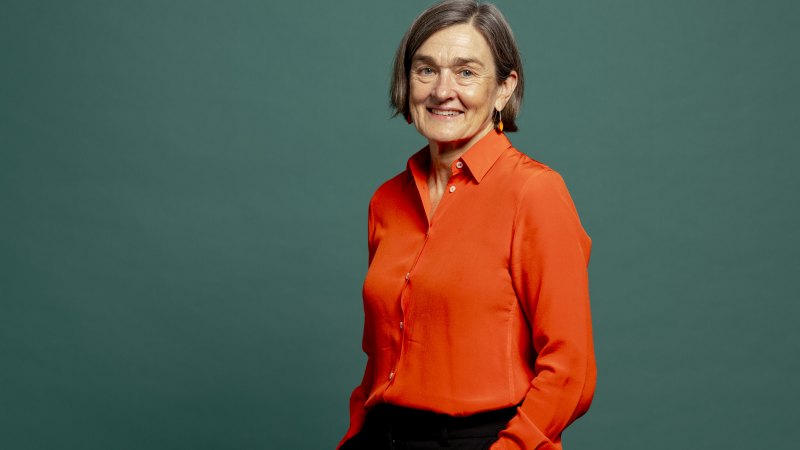Save articles for later
Add articles to your saved list and come back to them any time.
The boss of the Sydney Opera House is in the frame for a new role spearheading sweeping changes to the state government’s approach to the creative arts, as two of Sydney’s leading cultural institutions face a looming funding squeeze.
Opera House chief executive Louise Herron has overseen the writing of NSW Labor’s new 10-year road map to reinvigorate the faltering sector, struggling with rising expenses and cost of living increases.
On the move? Opera House CEO Louise Herron.Credit: Dominic Lorrimer
She is regarded as the lead candidate for a new position being considered by the Minns government that sits within the Department of Enterprise, Investment and Trade to co-ordinate the response of departments and agencies to new policy recommendations.
A lack of co-ordination between various arms of government emerged as one issue among many bugbears in 775 submissions and 12 town hall meetings called during community consultations over arts policy.
“Consultation across the state has identified a challenge in co-ordination across the relevant parts of government, particularly around funding processes. This is having a real impact on arts organisations and creatives,” Arts Minister John Graham said.
“The forthcoming policy is considering how to solve this challenge. Final decisions have not been made about how to implement the policy, who might implement it, or how implementation will be co-ordinated.”
Herron has just overseen the Opera House’s decade of “renewal”, including much-heralded concert hall renovations, and the institution’s 50th birthday celebrations.
Her departure would likely trigger an international search for a new chief, with STC’s Anne Dunn and Biennale of Sydney’s Barbara Moore among potential local candidates.
Opera House Trust chair Lucy Turnbull’s three-year term ends on December 31, and sources who are not authorised to speak publicly said she has not been reappointed.
The Minns government’s strategy for the creative arts is expected to be announced in weeks and will make recommendations about how creative industries are to be funded and supported, and the way in which arts workers are housed and trained.
Graham has promised more user-friendly funding applications and an end to onerous paperwork that artists, musicians and creatives say is stifling creativity and contributing to burnout.
He has also spoken of the need for affordable live-work spaces, pop-up spaces, and small galleries and theatres, through tax incentives for landlords and planning reforms encouraging the conversion of vacant spaces and shopfronts into studios.
Sydney Opera House Trust chair Lucy Turnbull with Sydney Opera House CEO Louise Herron.Credit: Dominic Lorrimer
The developments come as two major cultural institutions – the Museum of Contemporary Arts and the Art Gallery of NSW – have signalled worsening financial troubles following the September state budget.
The MCA is considering reimposing paid public entry and cutting its operating hours as it struggles with rising operational costs and largely static government funding.
Art Gallery of NSW director Dr Michael Brand flagged budget cuts at a parliamentary hearing last month if the gallery failed to convince NSW Treasury of the need for millions more in operational funding.
Labor’s road map is expected to make the case for urgent reform of investment and funding programs across Create NSW, Investment NSW, Sound NSW, Destination NSW and Screen NSW.
It is to embrace new creative industries, such as digital gaming, as well as traditional art forms such as museums, galleries, visual arts, performing arts, literature, libraries, and theatres.
Graham has previously said there would be a focus on screen and digital games and contemporary music and a specific plan for western Sydney. Like the federal government’s strategy Revive, First Nations creatives are to be a core priority.
But at town hall meetings participants were told there was no new money and the policy focus would be solely on long-term structural change.
Create NSW has delayed second-round grants funding for projects and organisations before the policy announcement.
No new applications for multi-year funding were accepted this year, with existing applicants granted an automatic one-year extension while the government establishes its new funding priorities.
Herron and Turnbull declined to comment.
Find out the next TV, streaming series and movies to add to your must-sees. Get The Watchlist delivered every Thursday.
Most Viewed in Culture
From our partners
Source: Read Full Article


